If you’re an entrepreneur or a small business owner, you know that running a business requires capital. Whether you’re starting a new venture or expanding an existing one, you may need additional funding to cover expenses. Fortunately, there are many options for small business loans that can help you secure the capital you need. In this blog, we’ll explore some of the different types of small business loans available and provide some tips on how to secure funding for your company.
Types of Small Business Loans
- Traditional Bank Loans
Traditional bank loans are one of the most common forms of small business loans. These loans are typically secured and require collateral, such as real estate or equipment, to be pledged as security. Bank loans also typically require a good credit score and a solid business plan. If you meet these requirements, you may be able to secure a bank loan with favorable terms.
-
Small Business Administration (SBA) Loans
SBA loans are a type of government-backed loan that is designed to help small businesses get the funding they need. The SBA partners with banks and other lenders to offer loans that are partially guaranteed by the government. This makes it easier for small businesses to secure funding, even if they don’t have the collateral or credit score required for a traditional bank loan.
-
Online Lenders
Online lenders have become increasingly popular in recent years, offering a convenient alternative to traditional bank loans. These lenders typically have less stringent requirements than banks and may be willing to work with borrowers who have less-than-perfect credit. However, online lenders may charge higher interest rates than traditional lenders, so it’s important to do your research before applying.
-
Invoice Financing
Invoice financing is a type of loan that allows businesses to borrow money against outstanding invoices. This can be a good option for businesses that have a lot of outstanding invoices and need cash flow to cover expenses. The lender typically advances a percentage of the value of the outstanding invoices and charges a fee for the service.
-
Equipment Financing
Equipment financing is a type of loan that is used to purchase equipment for your business. This can include everything from vehicles to manufacturing equipment. The equipment itself is used as collateral for the loan, making it easier to secure financing.
Tips for Securing Small Business Loans
- Develop a solid business plan
Lenders want to see that you have a solid plan for your business and that you have a clear understanding of your market and competition. Your business plan should include financial projections, marketing strategies, and an overview of your management team.
-
Maintain good credit
Your personal and business credit scores are important factors that lenders will consider when evaluating your loan application. Make sure to keep your credit in good standing by paying bills on time and keeping your debt-to-income ratio low.
-
Be prepared to provide collateral
Most lenders will require some form of collateral to secure a loan. This can be real estate, equipment, or other assets that you own. Make sure you have a clear understanding of what collateral you can offer before applying for a loan.
-
Shop around for the best rates
Different lenders offer different rates and terms, so it’s important to shop around and compare offers. Look for lenders that offer competitive rates and flexible repayment terms.
-
Build relationships with lenders
Building relationships with lenders can help you secure funding in the future. Make sure to stay in touch with your lenders and update them on your business’s progress. This can help you build trust and make it easier to secure funding when you need it.
Conclusion
Securing funding for your small business can be challenging, but there are many options available. By developing a solid business plan, maintaining good credit, and exploring different loan options, you can find the funding you need to take
